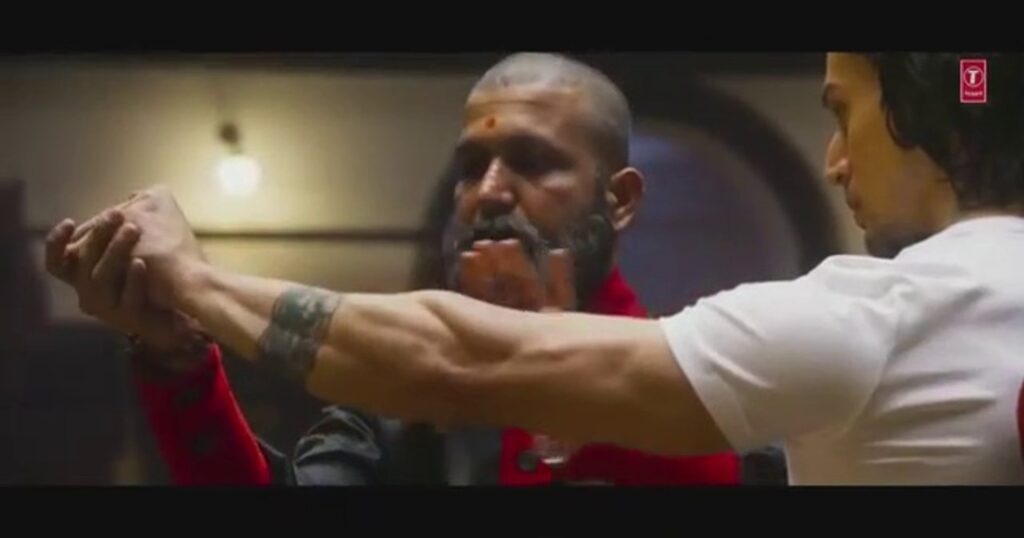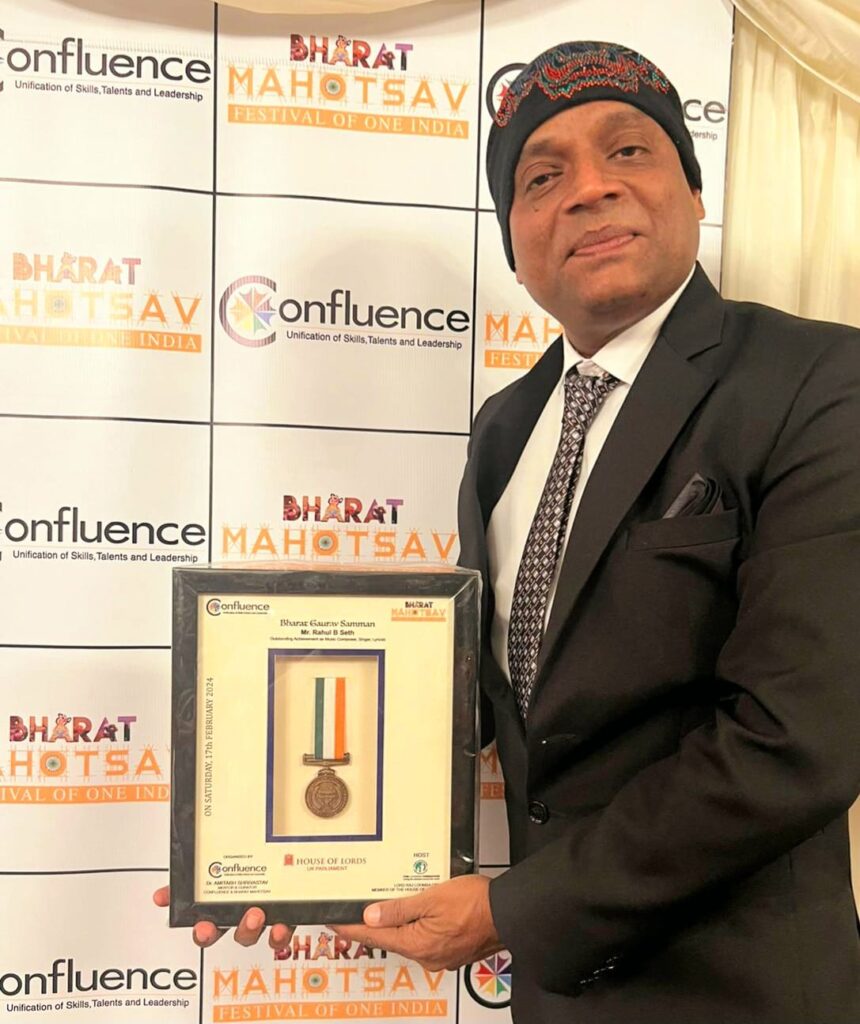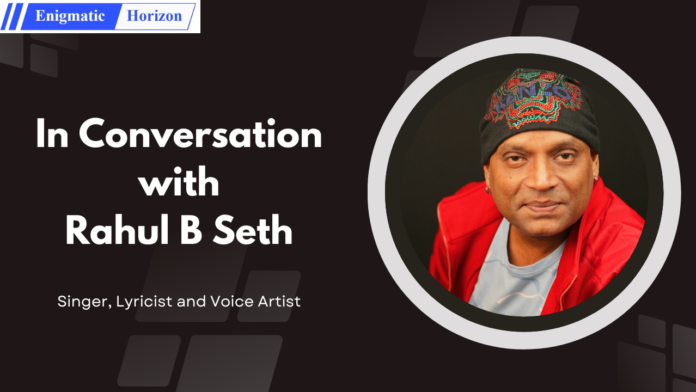Written and edited by – Robin Bhuyan (Editor-in-Chief)
Interviewed by – Shashi Salwani
Join us in a conversation with Rahul B Seth, a well-known singer, lyricist, music composer and voice artist. Rahul recently won the Bharat Gaurav Samman at the House of Lords – U.K. Parliament, London.
He has worked on popular songs such as “Get Ready to Fight” from the movie Baaghi, which has reached nearly a 100 million views, and songs for films like Yamla Pagla Deewana, Vaada Raha, Khel, and more. He has also dubbed in Hindi for popular Hollywood actors such as Will Smith in the movie I am Legend, as well as for Aaron Eckhart, who played Harvey Two-Face in Christopher Nolan‘s Oscar winning and highly acclaimed and popular film The Dark Knight, which is known as one of the best movies in the history of cinema, along with the voice of actor Collin Farell as the character of Penguin in the latest Batman movie.
What drew you to the world of music?
Since a very young age, I was exposed to a lot of music and writing, being from a family seeped in literature and creativity. My maternal grandfather was a well-known Punjabi / Hindi film actor whose screen name was ‘Majnu’. I also spent my childhood in Zambia, Africa and got exposed to some amazing African and world music.
Tell us about your song ‘Main Hoon Naari Shakti’, which has gained significant appreciation and awards.
The song was written and composed by me and sung by well-known singer Vaishali Samant. This special project, also produced by me was basically done as an inspiration for all women and girls, and it’s video featured 53 empowered women from various professions and walks of life. The song and video went on to win four international film festival awards.
I belong to a family of strong women who have always inspired me. My grand aunt, Leila Seth, was India’s first woman Chief Justice. My mother and my grandmothers from both sides were an inspiration for me to write this song. From an early age, I have had tremendous respect for females, and I felt it was important for me to create a song about empowered women.
The song ‘Get Ready to Fight’ which you wrote for Tiger Shroff’s super hit film Baaghi, has gained a lot of popularity, reaching almost 100 million views on YouTube. Tell us about your experience. Did you ever anticipate it would reach 100 million views?

I have spent many years in advertising, creating ad jingles, brand songs and anthems. Thus, owing to this expertise of mine, the director of the film, Sabbir Khan asked me to write a hard-hitting motivational anthem in accordance to its great importance in the film. I was given the words ‘Get Ready to Fight’ as the basis for the song. I was also given a basic melody and rhythm structure by the music director Pranaay. So, I went on to write it, and everyone was very happy and thrilled by the way my words exactly depicted the director’s vision and the situation in the film. The song became quite inspirational for people and turned into a true to life motivational anthem. It has reached almost 100 million views on YouTube. While I did anticipate it would connect well with people, I never thought it would reach this level of popularity.
You have won the Bharat Gaurav Samman and other such awards. How important are awards for an artist? Do you think they can distract young artists?
Winning an award can definitely motivate you and provide validation that you are doing something positive. You feel appreciated because your work is being recognized. Recently, I received the Bharat Gaurav Samman at the House of Lords – U.K. Parliament, during Bharat Mahotsav 2024, supported by our Ministry of Culture and External Affairs.
It was a proud moment for me. So, I would say that, rather than distracting artists, awards like these do matter and inspire us to work harder and better.

Your recent Holi song “Raangbaazi” also received a lot of positive feedback. Tell us about it.
It was a wonderful experience. It was released outside of India, in The Netherlands and Suriname- South America, where it gained great popularity. I collaborated on this song with well-known singer Hamsika Iyer and another singer Wishal Singh from Holland who was also my co-producer in this project. This song got played across the radio in several countries, along with our interviews, and people from all over made many reels on it as well. In fact, one such reel made by the local ‘Nakuru Players’ from Kenya got almost 23000 plays on Instagram.
Last year, India won an Oscar for “Naatu Naatu“, and this year India won multiple Grammy Awards. Do you feel that Indian music is slowly gaining appreciation worldwide?
Even previously, Indian music used to be quite popular worldwide. But today, things are definitely getting better due to social media. For example, my Holi song “Raangbaazi” was appreciated in countries where people don’t even know Hindi. This proves that music has no language barrier, and I feel this is the right time for artists to come together and showcase their talent.
Do you feel the Indian music industry is hugely reliant on the film industry?
For a long time, songs were known by the movies. But things changed in the 1990s, due to the rise of Pop artists, such as Baba Sehgal, Daler Mehndi, Alisha Chinoy, and many others and dedicated pop music on TV channels like MTV and Channel V. There was a huge boom in independent music. But later again, Bollywood took over. However, now, due to the rise of digital media and so many streaming platforms, independent artists have again got the opportunity to showcase their skills. Now, I feel that Indian artists are not solely dependent on films anymore.
You have also been a dubbing artist for several Hollywood movies. Do you feel that many dubbing artists have not received their due, despite their hard work?
Today, people from all over the world, including India, prefer to watch international content in their own languages. Thus, people are realizing the importance of dubbing artists. So they are gaining a lot of respect, even leading to the rise of star dubbing artists. When people come to know that you have been the voice of such renowned Hollywood stars, they look at you in quite a different way.
In India, songs are known by the actors rather than the singers or songwriters. How do you feel that this can change?
Yes, this has been going on for a long time. But things are starting to change. Earlier, singers were known by the actors for whom they used to sing, and vice versa. Back then, artists had a distinct style and voice. Today, unfortunately, the distinct identity of a vocal artist seems to be fading away, as many singers sound the same.
What are your thoughts on Indian award ceremonies?
Most award ceremonies have become a business, to be honest. They are hosted to market themselves or to promote a brand. Today, you will suddenly hear about an award that you have never heard of before. Genuine awards do matter, but many don’t have credibility. I, myself, have received calls from people asking me to pay to receive awards, which I declined.
How do you think A.I. is going to impact the music scenario?
We can’t ignore the positive impact of technology. Fifteen years ago, people might have never thought that it would be possible to do video calls so easily using your phones. Similarly, A.I. has many positive uses, but its misuse should be prevented. In Hollywood, there has been a huge protest against its negative use, and so artists need to unite to ensure that A.I. is not used for copyright infringement and other such negative uses.
Tell us about your future projects.
I am working on a few films and collaborating with several international artists and producers. I am also working on some new singles. A lot of stuff is going on! A creative mind is a restless mind, and so, something is always cooking within !
